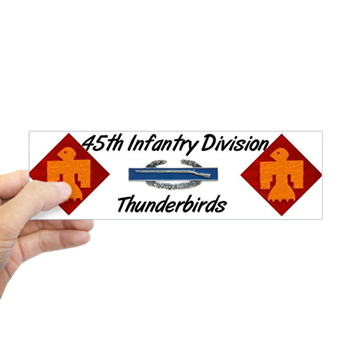Camp
Barkeley taxi service was a short-lived hitBy
Bill Whitaker, Abilene Reporter-News; Tuesday, July 6, 1999
whitakerb@abinews.com Take,
for instance, 79-year-old Lowell Hughes of Roswell, N.M., one of 20 veterans from
the 45th Infantry who traveled to Abilene just for the monument dedication at
the old Taylor County Courthouse. Like most soldiers, he well understood why Abilene
was so excited to have a full-blown army camp near town in 1941.
It wasn't
just patriotic fervor that had Abilenians lining the streets as the 45th Infantry
rolled through on their way to Camp Barkeley. It was also the promise of economic
prosperity.
But if that makes Abilene seem mercenary, it shouldn't. Some Army
soldiers also found the times ripe for opportunity. Some with a little money would
loan a fellow G.I. $10 - and then get $15 or $20 back a few weeks later following
payday. The trick, of course, was ensuring that you got paid back at all.
During
his stay at Camp Barkeley, Lowell and an Army buddy purchased a '36 Pontiac for
$300 from somebody in Dallas, converted it into a taxi and, in their off-hours,
hauled soldiers back and forth to Abilene. Many soldiers, it seems, didn't want
to take the far slower bus for fear all available single women in Abilene would
be snatched up by the time they arrived.
"It was pretty comical,"
Lowell admitted. "We had no license, no nothing, except for the car itself.
But we had soldiers swarming us for business. They'd get as many as they could
in there - four in the back seat and two in the front, besides me. I guess we
did that till we went on Louisiana maneuvers in June. But we made a lot of money."
Certainly,
it helped supplement the Army pay of $21 a month.
For the record, Lowell and
his buddy, a fellow New Mexican, took the taxi with them to Louisiana - not so
much to continue their money-making salute to capitalism but simply to get around
in. Alas, the car cratered on them and no one in Louisiana could figure out how
to revive their taxi business.
"We were traveling down this rough road
and it just knocked the battery out underneath," he said. "And, well,
you couldn't buy a battery nowhere in those days, so we went off and left it.
"It
was good while it lasted," he sighed.
|
Soldier
Mike mascot gunned down (1941)
April
9, 1941 - Camp Barkeley's 45th Division lost its first member due to gunfire.
Soldier Mike, the Saint Bernard mascot of the 120th Medical Regiment, was killed
by five shots from a rancher who said the dog killed five of his sheep. Soldier
Mike was buried with full military honors the next day with Capt Robert G. Hedrick
reading the final rites. Attending the ceremony were soldiers, a few wives, one
child and one dog. The dog, a police dog named Shep, was reported to be Mike's
worst enemy, who nevertheless respected Mike. A front-page story was accompanied
by a photo of Mike on his second birthday and reported Mike was to have been promoted
to sergeant and given a blanket the day of his funeral.
Source:
Abilene Reporter-News files
|
Silver
Star Awarded For Routing Ambush
"HE
was an infantryman with the 45th,"
Jeannie
Heard can say proudly of "Pop" when she starts going to school some
day, after the great war ends. And the other youngsters will know what she means
and understand why Jeannie is proud.
But right now, because Jeannie isn't quite
3, it's just a little bit vague, all this stuff about the Silver Star, and her
daddy (Capt. Clovis D. Heard) commanding "Company A" through the Sicilian
and Italian campaigns. She listened intently, though, the other day when her mother
read his "' last letter, which said: "The 45th is going strong. We now
have a record of more days continuous combat than any other American division."
Then
Jeannie smiled with her mamma at that picture of a handsome stranger and wondered
why a story should come in such awfully big words. Here is how the war department
"reveals" that Captain Heard, as "member of a patrol on reconnaissance
of a route over which his battalion was to move," won the army's third highest
award.
The citation reads:
"He accompanied the patrol leader when he went forward to view the terrain
to the front while the patrol halted under cover. Captain Heard and the patrol
leader saw two enemy approaching who soon were joined by three others. The two
officers, acting with great boldness, advanced, killing two and wounding a third.
They proceeded and came;
upon an enemy machine gun and mortar position. Again they advanced and in the
fight, that ensued killed three more enemy. The remainder of the combat patrol
coming up joined in the action, and following the example set by Captain Heard
and the patrol leader, captured the .position, killing four and taking 11 prisoners
with, a considerable number of weapons.
"The
prompt and gallant action by Captain Heard in support of the patrol leader resulted
in clearing the routs of an ambush laid for the battalion."
Jeannie, who lives with her mother at 921 NE 8, has two uncles as well as a father
in the service. They are Pvt. William L. Heard, also "somewhere in Italy,"
and Cpl. Walter P. Heard, In New Guinea. Captain, Corporal and Private Hard are
the sons of William C. Heard, Bokchito.
Captain Heard spent his early schooldays
in Durant, graduated from Utica high school and was a student at Southeastern
Teachers college and Stillwater A. and M. He entered service as a corporal with
the 45th, Sept. 16, 1940. Mrs. Heard works at Will Rogers field.-E. B. s.
|
That's
No Stiff, It's PFC Landry
For
the record
Pfc Gerald Landry, Lewiston, Me., is a casualty in this campaign.
He skinned his nose getting in his slit trench in a hurry.
Pvt. Edward Johnson,
Pawtuoket, R. I., crouched in his hole one dark Italian night and waited for the
German shells that had been peppering the area. Along came two mnedics from his
outfit, Pfc. Charles Cap and Pvt. Cad P. Casaula, Little Falls, N. Y.
Casaula
took one look at the trench and the bearded pan of the occupant. " Look,
" he muttred, " a dead German "!
Landry feels he's been insulted, 45th
Division News October 4, 1943 Vol V, No 12
|
Pass
the Spuds, And Chicken Gravy
The
mainland has proved a dietary boon for many a Thunderbird, but two in particular
have benefitted greatly.
Medic St. Sgt. Brick Mc Lain, Bethany, Okla., would
rather have fried chicken than anything, while artillery St. Sgt. Ansel Rake,
Sperry, Okla., will make his french fries and eggs, sunnyside up. In Sicily, they
used alarm clocks in lieu of roosters, and never heard of the Irish, no less potatoes.
Now,
however, the countenances of the two sergeants are radiant again. They've discovered
that the neighboring farmers will gladly turn over their stock of chickens and
potatoes; for a price, that is. for a price. 45th
Division News October 4, 1943 Vol V, No 12
|
Winter
Camouflage My father John
B. Foster served as a rifle platoon lieutenant in the 45th division, being wounded
twice. He was evacuated from Lagone, Italy suffering from both shrapnel wounds
and hepatitis from a blood transfusion. He had a good winter story... ... Winter
camouflage uniforms are all similar and so occasionally German and Allied troops
got mixed up. This happened to my father during a quiet time in the war. Returning
from a HDQ meeting one night, he walked into a barn that looked like the one where
he left his men. Sure enough, a group of soldiers in winter camouflage were sitting
around chatting. When my father entered, they all fell silent. Something was wrong,
a little different.... Then he saw one of the soldiers slowly reaching for a weapon,
and that was it. They were Germans! He shot one reaching for a weapon and two
other guys going for their rifles. And then he ran for his life - - across a frozen
field plowed in rows, he remembers. The Germans were yelling and shooting everywhere
in panic. A half-track rolled into position on a road next to the field and started
sweeping.... ... My father leaped into an irrigation ditch just in time as the
half-track's 50 caliber bullets ripped through the bushes along the ditch. In
one of those "like it was yesterday" memories, my father remembers seeing
those bushes ripped into molecules just inches above his head. Since it was night,
and none of the German boys felt like getting shot in the dark that night, my
father was able to crawl away through ditches and find his way back to his men.
... ... The next morning, my father's platoon and others moved onto that farm
and found a lot of blood stains and bandage wrappers in that barn, confirming
several hits. I sort of wish I could find out where this event happened, but my
father is not around anymore to inform me more closely. Also, it would be interesting
to find the Germans involved in this memorable event. www.45thdivision.org
Guestbook |
Ammunition
Passed Despite Heavy Fire
T
was a bit of daring ammunition passing that brought to T/Sgt. Daniel L. Worley
of Ardmore, the award Of a Bronze Star.
The
place was the Anzio beachhead. The time was middle March. And Worley was with
the 45th division when he passed the ammunition that not only brought him the
medal, but, in the words of the citation, "enabled the company to maintain
its defensive p o s i tions and prevented serious breakthrough by the enemy." The
citation, with usual dignity, tell; how the 22-year-old sergeant "'during
sustained German attacks" led a group of men across -600 yards of open ground
under heavy enemy tank and small arms fire to deliver critically-needed ammunition
to a beleaguered infantry company. Worley, himself, tells it too, in a letter
scribbled late one April night:
"Guess you read the news of some of the
trouble we had on the "Ides of March." Boy that was a crackerjack. I
saw Jerry tanks lined up 30 in a row. The artillery really had a field day. There
were dead Jerries all over the place.
They
threw in elements of four divisions during the attack, but only succeeded in gaining
about 1,000 yards, which we have already taken back.
"Boy! Were my knees
knocking one time! The boys and I had to cross a space 600 yards long with no
cover to get ammunition to the outfit. Man alive! The Hun was throwing everything
but the kitchen sink at us. But we made it and no one hurt… Just thought
you'd like to know what we do sometimes."
Dan
Worley joined the 179th infantry of the old national guard back in Ardmore high
school days. That was in June 1940, and he took stout football training along
when he became an "Army man" in September. From Fort Sill through Sicily,
through Anzio, to France, he has trained and fought with the men of the 179th.
His
parents, Mr. and Mrs. Albert L. Worley, live in Ardmore.-- Beatrice Stahl
|
| | | |
|
|
|


